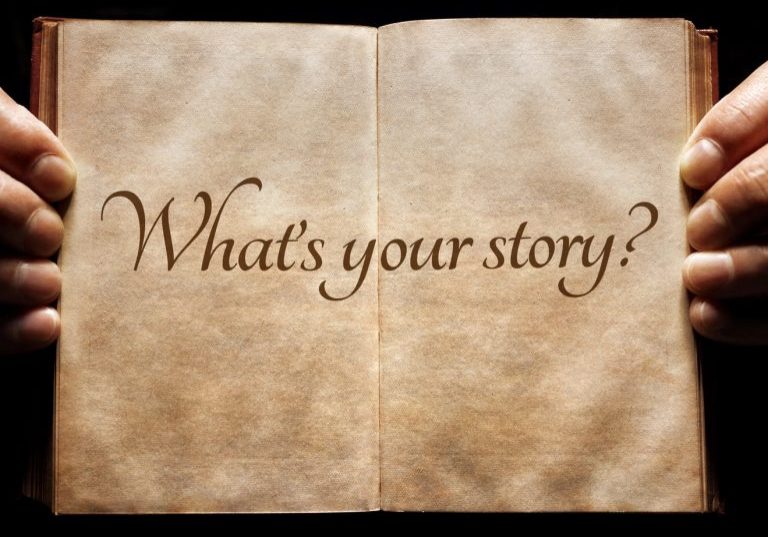Part 3: Beyond Right and Wrong .. and Betrayal.
“Out beyond ideas of right-doing and wrong-doing there’s a field. I’ll meet you there.” ~ Rumi
Many years ago, I discovered a powerful practice that helps couples tell better stories in their relationships. Whether of past painful breakdowns, or happy memories they remember differently, this simple practice helps couples avoid getting bogged down in the sticky mud of facts.
The practice is simply to banish the words “right” and “wrong” from your relational vocabulary.
Those two words tend to require agreement over ”facts” likely to be so charged with emotion that a stubborn disagreement is inevitable. Removing them instead compels each partner to simply be with their own experience, while simultaneously making room for the other’s experience.
This empowering practice does a few important things:
First, it invites genuine vulnerability.
When you can’t take the moral high-ground by labeling your partner’s (or your own) behaviors and choices as right or wrong, you’re compelled to confront what’s really going on inside you at a deeper layer.
You still get to own and speak to your hurt, your anger, your fear, your desire, or whatever is coming up for you, but you must do so without the strategic advantage of that moral high-ground that only has you look down on your partner. You get to stay focused on exploring and sharing your own truth, your own experience – the felt impact of events on you, not the morality of it. Which offers your partner a real chance to stay out of their own defenses, because they no longer feel morally judged.
Second, because real vulnerability finally enters the scene, unclouded by moral judgy-ness, this opens up space for both of your truths to come forth and be present in whatever story gets told. After all, if no one is right or wrong, a more complex reality can finally emerge, one that incorporates both of your experiences.
Even Silvy and I still disagree on certain “facts” of our past. We just don’t let that stop us from telling our stories in ways that leave each other feeling loved and respected.
Facts just don’t matter as much as how we consciously choose to see, hold, and honor both partners’ truths and experiences. Arguing to get the facts right never creates emotional safety and heart connection.
A healthy and vibrant ”Planet of Us” isn’t built by facts, but by the ongoing effort to merge your two distinct worlds into shared realities that serve (and include) both of you.
Betrayal: When facts really matter.
“Don’t we need to agree on the actual facts of what happened first, before we can even hope for any kind of healing?”
Great question.
Yes.
Facts matter most in an intimate relationship when working through betrayal.
Betrayal happens when one partner discovers the other has been offering a blatant misrepresentation of the facts of their partnership. The entire past suddenly, unexpectedly, gets rewritten in the mind of the betrayed partner, as they learn that what they thought was true about their relationship wasn’t actually true. Such a revelation is always profoundly disorienting, like an earthquake that suddenly turns the solid ground you’ve been standing on into a liquid sand with no bottom.
The first step in recovering from betrayal is a full and factual reconciling of what actually happened.
Both partners must eventually come to agree on the same historical facts – what happened, when it happened, where it happened, how it happened. According to renowned relationship experts, The Gottmans, the only thing a couple should NOT attempt to fully reveal, when the betrayal involves sex, is the actual sex act, what it specifically looked like, felt like, etc. Everything else needs to be put on the table.
They don’t necessarily have to agree on the reasons why the betrayal happened.
Nonetheless, the betraying partner will have to eventually demonstrate that they fully understand, in a felt, embodied way, the impact of the betrayal on their partner. Only once a full inventory of the actual betrayal has occurred, which can potentially take many months depending on the extent of the betrayal, what must begin next, if the couple chooses to stay together, is a long journey towards rewriting a new story about their relationship.
I’ve said it to many couples over the years when attempting to heal from betrayal:
“Your previous relationship is over. Done. If you make it through this together, it will be because you’ve created a new relationship, based on new agreements, new commitments, new behaviors, new everything. You’ll essentially become new people to each other, and to yourselves.”
In other words, they must now begin to find their way to a new story of their journey.
Many couples working through a betrayal will naturally endure intense aftershocks for years that continue to scream out the pain of the past: “You were a selfish liar!” “You didn’t care enough about me to be honest!” “You abandoned me!”
Which is to be expected. The aftershocks of that earthquake discovery will occur long after the initial shock subsides. Eventually, though – and this happens in its own time, as couples persist in doing the necessary work over many years – the relationship must move past those old stories. They must not be allowed to dominate anymore.
A new story that truly serves the relationship will thoughtfully incorporate the betrayal but not be defined by it. It will also find its way to not portray either partner as hapless victim or evil perpetrator.
Betrayal is a massive topic beyond the scope of this post. There are many resources offering roadmaps through that treacherous landscape.
I simply want to impress upon you, my dear reader, the vital importance of stories in relationships, how we hold them, and how we tell them.
Stories create the relationship. Tell more stories that feel good to both of you, and enjoy a good relationship. Tell more stressful stories, and stress will define you.
In the end, the stories you tell are a choice you make.
Maybe you’re in a relationship where the stories being told are consistently more painful and stressful than they are honoring and praising. Maybe you’re doing the work to find your way to a new story together, and you just aren’t getting there. If that’s true, and you’ve been working at it a long time with good support, then you may be doing more harm in staying together. Ending the relationship, and letting each other go to each find your own way into new stories with someone else, or by yourselves, might be the most loving, mature thing you could do.
After all, it’s torture to be with someone whose stories about you don’t feel honoring, or generous, or kind, or loving.
Conversely, to be with someone who holds you in reverence, who honors you and seeks to see the best in you, even when you’re imperfect … well that’s just sublime.
So, what stories do you still disagree/argue over with your partner? (Single? Reflect on a past relationship. What did you experience?)
What is all that arguing costing you?
What might you gain by learning to tell your stories in a new way … together?
♦◊♦
In case you missed it ..
👉 Part 1 “My Story Isn’t Our Story”
👉 Part 2 “Relationship Isn’t a Real Thing”
p.s. If want coaching to help you elevate your relationship stories, contact me at [email protected].
- 0shares
- 0Facebook
- 0Twitter
- 0Pinterest
- 0Email




Leave a Comment